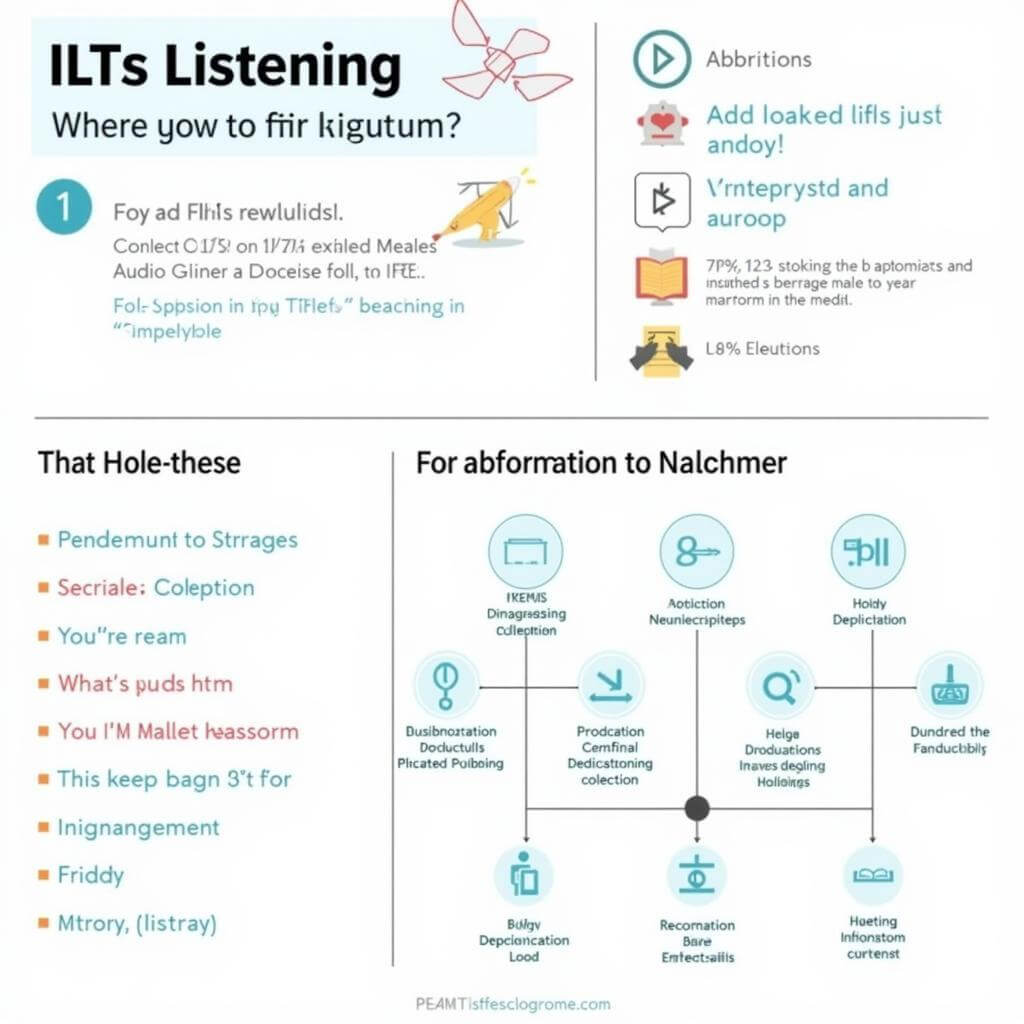The IELTS Listening test is a crucial component of the overall exam, requiring candidates to not only hear but also comprehend and retain information effectively. Boosting retention during listening is a key skill that can significantly improve your performance and ultimately your IELTS score. As an experienced IELTS instructor, I’ll share valuable insights and strategies to enhance your listening retention abilities.
Understanding Listening Retention in IELTS
Listening retention refers to the ability to hold and recall information you’ve heard during the listening test. This skill is essential for accurately answering questions and completing tasks based on the audio material. Staying calm during listening test is crucial for effective retention, as stress can impair your ability to focus and remember details.
Key Factors Affecting Listening Retention
- Concentration
- Active listening
- Note-taking skills
- Familiarity with accents and speech patterns
- Vocabulary knowledge
Effective Strategies for Boosting Listening Retention
1. Develop Active Listening Skills
Active listening involves engaging with the audio material mentally, rather than passively hearing it. To practice active listening:
- Predict possible content before the audio begins
- Focus on key information such as names, numbers, and dates
- Visualize the information being presented
- Mentally summarize main points as you listen
2. Improve Note-taking Techniques
Efficient note-taking is crucial for retaining information during the IELTS Listening test. Consider these tips:
- Use abbreviations and symbols
- Focus on keywords rather than full sentences
- Organize notes logically (e.g., use headings, bullet points)
- Practice note-taking with various types of listening materials

3. Expand Your Vocabulary
A broader vocabulary can significantly improve your listening retention. Try these methods:
- Read widely on diverse topics
- Learn common academic and idiomatic expressions
- Study word families and collocations
- Use vocabulary apps or flashcards for regular practice
4. Familiarize Yourself with Various Accents
The IELTS Listening test features speakers with different accents. To improve your comprehension:
- Listen to podcasts, news broadcasts, and interviews from various English-speaking countries
- Watch movies and TV shows with diverse casts
- Practice with IELTS listening materials from different regions
5. Enhance Your Working Memory
Working memory plays a crucial role in listening retention. Strengthen it by:
- Playing memory games
- Practicing mental math
- Engaging in activities that require multitasking
- Using mnemonic devices to remember information
Applying Retention Strategies in IELTS Listening Tasks
Different question types in the IELTS Listening test require specific retention strategies. Let’s explore how to apply these techniques effectively.
Multiple Choice Questions
- Read questions before listening to focus on relevant information
- Eliminate incorrect options as you listen
- Pay attention to distractors in the audio
Fill-in-the-Blank Questions
- Anticipate the type of word required (noun, verb, number, etc.)
- Listen for synonyms or paraphrased information
- Pay attention to word limits specified in instructions
How to boost accuracy in matching questions for IELTS listening is another crucial skill to master, as it requires effective retention of multiple pieces of information simultaneously.
Map/Diagram Labeling
- Study the visual carefully before listening
- Identify key landmarks or reference points
- Listen for directional language and spatial relationships
Common Mistakes to Avoid
- Fixating on missed information
- Neglecting to read questions thoroughly before listening
- Writing full sentences instead of key points in notes
- Ignoring context and overall meaning
- Failing to manage time effectively across all sections
Practice Techniques for Improved Retention
- Regular listening exercises with timed conditions
- Transcribing short audio clips to improve accuracy
- Summarizing podcasts or news broadcasts orally
- Participating in English conversation groups
- Recording yourself answering sample IELTS questions
Conclusion
Boosting retention during IELTS Listening is a skill that can be developed with consistent practice and the right strategies. By implementing active listening techniques, improving note-taking skills, expanding vocabulary, and familiarizing yourself with various accents, you can significantly enhance your performance in this crucial part of the IELTS exam. Remember, the key to success lies in regular practice and application of these techniques in realistic test conditions. Keep refining your approach, and you’ll see improvements in your listening retention and overall IELTS score.